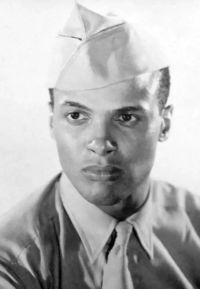 Harry Belafonte, the multi-talented American singer, actor, and activist, died last week at the age of 96. Born in Harlem to Jamaican immigrants, he shattered racial boundaries in the 1950s. During his career, Belafonte popularized calypso music with audiences around the world. He also won an Emmy, three Grammys, an Oscar, and a Tony, earning the distinction of being an EGOT winner. His 1956 album Calypso was the first million-selling LP by a single artist. In addition to his accomplishments as a performer, Belafonte was a lifelong activist for civil rights and a supporter of humanitarian causes.
Harry Belafonte, the multi-talented American singer, actor, and activist, died last week at the age of 96. Born in Harlem to Jamaican immigrants, he shattered racial boundaries in the 1950s. During his career, Belafonte popularized calypso music with audiences around the world. He also won an Emmy, three Grammys, an Oscar, and a Tony, earning the distinction of being an EGOT winner. His 1956 album Calypso was the first million-selling LP by a single artist. In addition to his accomplishments as a performer, Belafonte was a lifelong activist for civil rights and a supporter of humanitarian causes.
Belafonte also served in the Navy during World War II, dropping out of high school to enlist in 1944. During WWII, the military remained segregated and African Americans were not generally allowed in combat roles. He was assigned to work loading munitions ships in Port Chicago, California, and narrowly missed one of the deadliest stateside explosions of the war.
Shortly before his arrived at the base, Port Chicago suffered a disaster on July 17, 1944. Two ships loaded with ammunition exploded. Thousands of pounds of bombs, shells, depth charges, and fuel erupted in two shock waves that were felt by seismographs at the University of California, Berkeley. The second, larger shock wave was equivalent to a 3.4 magnitude earthquake. The calamity killed 320 people of which 220 were black seamen.
“It was the worst home-front disaster of World War II,” says Belafonte, “but almost no one knows about it or what followed.”
When, after the blast, black seamen refused to load ammunition under the same unsafe, segregated conditions that sparked the explosion, 50 of them were convicted of mutiny and sentenced to prison. After the war, under pressure from NAACP attorney Thurgood Marshall, the Navy reduced their sentences.
“The Port Chicago mutiny was one of America’s ugliest miscarriages of justice, the largest mass trial in naval history, and a national disgrace,” Belafonte said to the LA Times.
If the injustice of the Port Chicago explosions and mutiny helped to inform Belafonte’s commitment to civil rights, his time in the Navy also helped to start his career as an entertainer. After the war ended, Belafonte used the G.I. Bill to pay for a drama workshop at the New School for Social Research in Manhattan alongside fellow students Marlon Brando and Sidney Poitier.

Pingback: Harry Belafonte and the Port Chicago Disaster & Mutiny - Walrus Neat